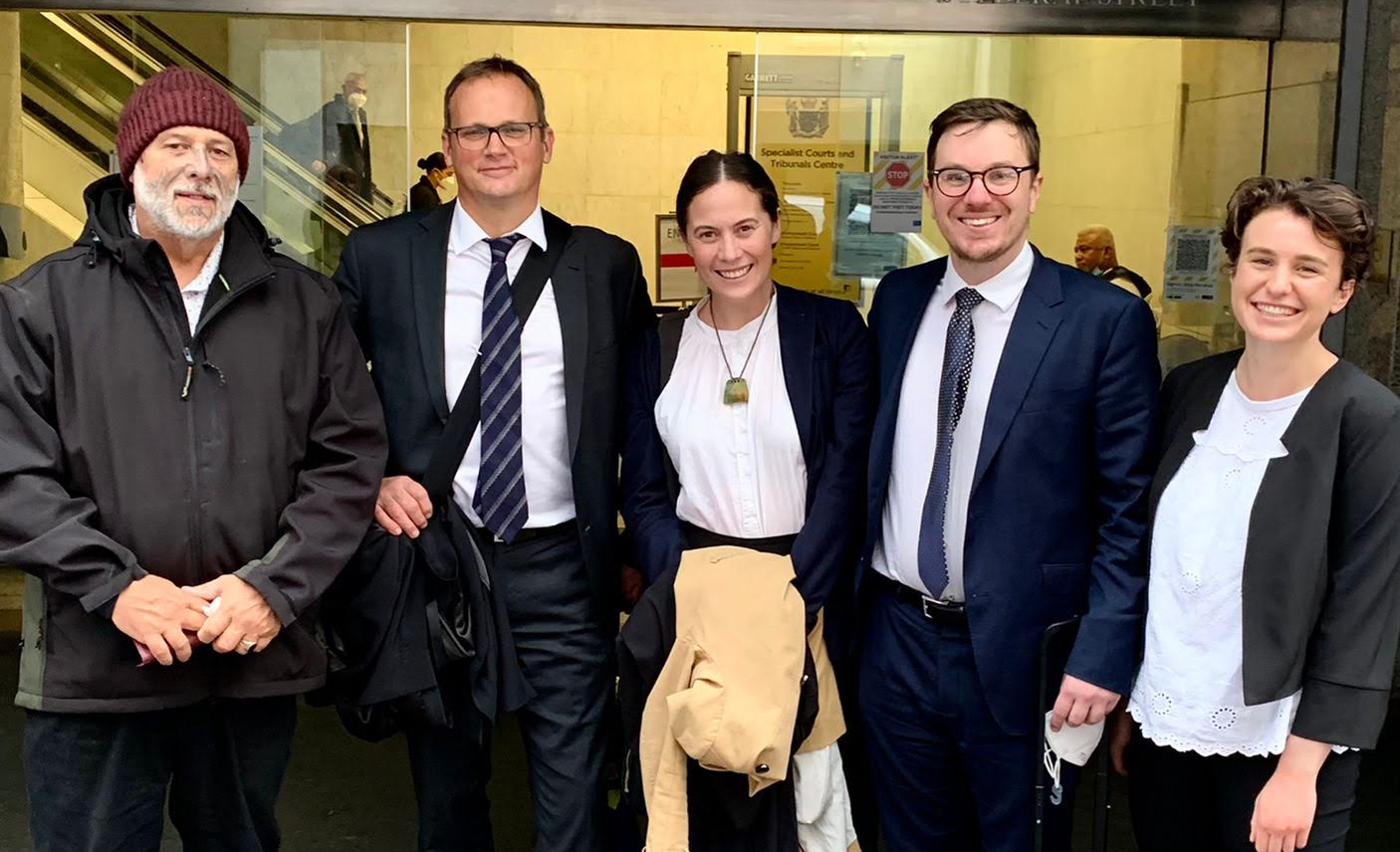David Bullock (SJD 2024)

Revitalising the Tort of Public Nuisance and its Role in Restraining Wrongs Connected to Climate Change (Thesis)
Graduate supervisors: University Professors Jutta Brunnée and Arthur Ripstein
Awards: Wedderburn Prize (Modern Law Review) (2022); Vanier Canada Graduate Scholarship (2021); Connaught International Scholarship (2020)
The COVID-19 pandemic ended David Bullock’s (SJD 2024) dream of spending time on the University of Toronto campus for his SJD courses, but he persevered, attending classes online from New Zealand – often at 2 a.m. As a result, he will able to enjoy Toronto briefly this spring as he defends his SJD thesis, which focuses on torts and environmental law.
Bullock began his law career in 2012, clerking for the Chief Justice of the Supreme Court of New Zealand for two years before moving on to practise law with a firm in Auckland. He has been there ever since and was named a partner in 2022. However, he has always been drawn to the academic side of law, taking a year off to earn an LLM at Yale in 2017 and working toward his SJD since 2020.
“I really like to solve hard legal problems,” he said. “In practice, I think about problems practically in day-to-day fashion, but doing academic work gives me the luxury of examining them from a policy and theoretical level, too.”
Bullock chose the Faculty of Law at the U of T because he liked the faculty’s strength in private law and environmental law and the combination of theoretical and practical applications that were available. He is interested in integrating environmental and tort law into a climate change context.
Recently, Bullock has celebrated a major victory in a precedent-setting case that was heard by the New Zealand Supreme Court, pitting a private Māori citizen against seven corporate polluters. The appellant, Michael John Smith, claimed that emissions from these companies were harming traditional Indigenous lands and sites of cultural and traditional significance. The companies attempted to have the case struck for an absence of legal merit.
As one of the counsel for Smith, Bullock presented oral arguments before the Supreme Court, which decided in Smith’s favour and ordered a full trial.
“The Supreme Court says Mr. Smith has legal claims that make a trial valid,” Bullock said. “It’s the first time a common law climate change case has gotten so far, pitting a private citizen against an emitter with respect to its private law obligations.”
During his presentation to the Supreme Court, Bullock was able to draw upon some of the legal research from his thesis. Both his research and that of his supervisor, Ripstein, were cited by the court.
“It’s a perfect example of combining academics and practice,” Bullock said. “It was really exciting and fantastic to see it coming together. It has been a long battle and we had lost in the lower courts.”
He hopes to continue to combine academics and practice, even if it is a balancing act, but, first, he’s eager to return to Toronto for his thesis defence.
“I’ve had great support,” Bullock said. “My supervisors and committee members engage with my research and make it better, and I was able to forge connections with the doctoral community, despite classes being online. I’ve felt part of things the entire time.”